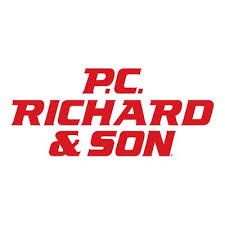 PC Richard & Son receipts continued to include more information than allowed by law for years, according to a recently filed class action lawsuit.
PC Richard & Son receipts continued to include more information than allowed by law for years, according to a recently filed class action lawsuit.
The lawsuit accuses PC Richard & Son receipts of violating FACTA (Fair and Accurate Credit Transactions Act) by printing receipts with the last four digits of debit or credit card numbers and the card’s expiration date.
According to FACTA as quoted in the lawsuit, “no person that accepts credit cards or debit cards for the transaction of business shall print… the expiration date upon any receipt provided to the cardholder at the point of the sale or transaction.”
FACTA was instituted, in part, to increase consumer protection against identity theft, a crime that can negatively affect a consumer’s financial situation for years.
PC Richard & Son Receipts Have Continually Violated FACTA, Consumers Say
Once enacted, FACTA law gave merchants up to three years to comply with the new requirements, setting a deadline of Dec. 4, 2006.
PC Richard & Son receipts violated FACTA until at least August 17, 2016, despite knowing the law, according to the court record.
Plaintiff Kathleen O’Shea said after Nov. 17, 2013, she completed a transaction at a PC Richard & Son store where she was handed an electronically printed receipt that contained the expiration date of her debit card and the last four digits of the card number.
Similar transaction receipts that violated FACTA laws were given to customers such as plaintiff Sandeep Trisal and other members of the class.
Before filing the complaint, O’Shea’s lawyers served PC Richard & Son a letter in November 2015, along with copy of the not yet filed complaint, demanding the defendants stop violating FACTA.
Still, PC Richard & Son kept committing FACTA violations through at mid-August 2016.
FACTA Violations Were Knowingly Committed, Complaint Alleges
PC Richard & Son were informed of FACTA through various entities over the years.
Their merchant bank that processes credit and debit card payments for their stores informed PC Richard & Son of FACTA rules and regulations, including the specific requirements to truncate credit and debit card numbers and to eliminate card expiration dates.
Likewise, Visa, MasterCard and similar debit and credit card companies created and implemented policies well in advance of the operative date of FACTA’s requirements to ensure its merchants would be in compliance.
The Federal Trade Commission sent notice of FACTA’s provisions to businesses at least three times in 2007, reminding them to abbreviate credit and debit card information on electronically printed receipts.
The PC Richard & Son receipts lawsuit says, “(The) defendants also knew that their electronic receipt printing equipment (inclusive of software and other codes) were configured and/or otherwise outdated such that they would print and were printing debit card and credit card receipts that displayed the card’s expiration date printed on customer receipts in violation of FACTA.”
PC Richard & Son are accused of avoiding “the expense, time and other resources required to properly configure and update their electronic receipt printing equipment,” which means their FACTA violations were not just accidental oversights.
The PC Richard & Son Receipts Lawsuit is Kathleen O’Shea et al. v. PC Richard & Son, LLC, et. al., Case No. 2:15-cv-09069-KPF in the U.S. District Court for the Southern District of New York.
Free P.C. Richard & Son FACTA Class Action Lawsuit Investigation
If you have received a paper customer receipt from any P.C. Richard & Son store with your personal credit card or debit card expiration date printed on the receipt, you may be eligible to join a free FACTA debit/credit card receipt class action lawsuit investigation.
ATTORNEY ADVERTISING
Top Class Actions is a Proud Member of the American Bar Association
LEGAL INFORMATION IS NOT LEGAL ADVICE
Top Class Actions Legal Statement
©2008 – 2025 Top Class Actions® LLC
Various Trademarks held by their respective owners
This website is not intended for viewing or usage by European Union citizens.














